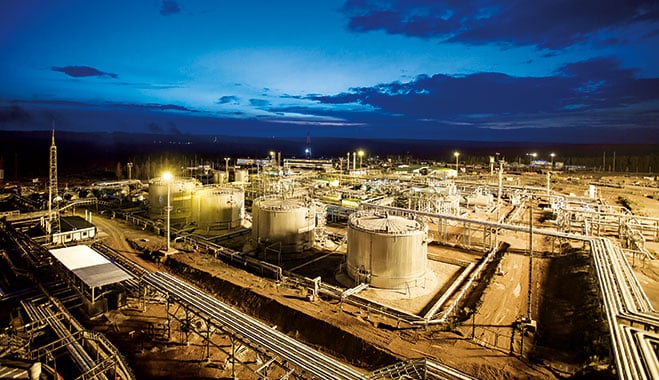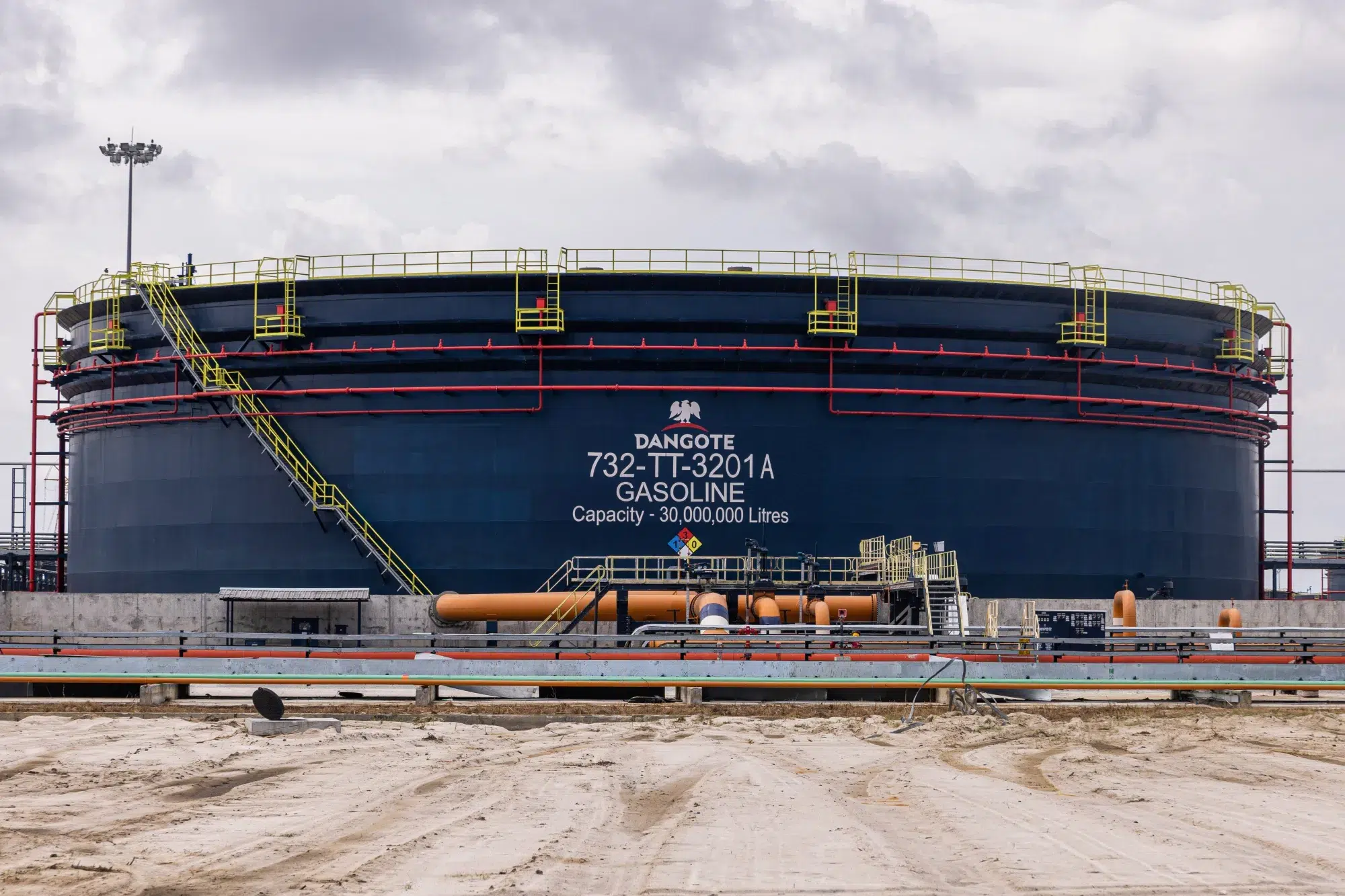Nigeria alone accounted for three out of the four final investment decisions, totaling over $5 billion, announced in Africa’s oil and gas sector in 2024.
For a country that once faced dwindling foreign investment in its oil sector, you already know something significant must be happening behind the scenes.
Over the last four years, Nigeria, Africa’s largest oil producer, has been betting on sweeping fiscal reforms to attract fresh investment into its struggling oil and gas sector.
“For us in Nigeria, despite concerns about energy security, we see significant opportunities,” NNPC VP (Upstream) Udy Ntia said at CERAWEEK in March.
“We have positioned our assets to benefit from the current strong price environment, which has remained stable over the past few years. As a result, we expect major investments in the sector.”
The industry had endured years of declining production, aging assets, and investor flight, and the government knew things would not change unless action was taken differently and intentionally.
New tax incentives and fiscal frameworks are now creating a friendlier environment for international oil companies (IOCs) and indigenous players alike.
A sector in need of revival
For much of the past decade, Nigeria’s oil industry has struggled with declining output and dwindling foreign investment.
Insecurity in the Niger Delta, crude oil theft, and regulatory uncertainty have all combined to drive capital away.
In 2015, Nigeria’s average crude oil production stood at 2.17 million barrels per day (bpd).
By 2024, it had dropped to around 1.49 million bpd—a nearly 31% decline in just nine years.
Between 2020 and 2022 alone, production fell by 23%, from 1.49 million bpd in 2020 to 1.14 million bpd in 2022.
The sharpest dip came in August–September 2022, when output fell below 1 million bpd, largely due to sabotage and theft.
At the same time, the global energy transition increased pressure on international oil companies (IOCs) to justify investments in higher-risk regions.
Many responded by divesting onshore and shallow-water assets, leaving local players to step in.
Against this backdrop, the Nigerian government began revising its tax regime to reverse years of stagnation and signal a new era of competitiveness.
PIA – the starting point
The passage of the Petroleum Industry Act (PIA) in 2021 laid the foundation for fiscal reform.
The law replaced an hitherto opaque regime with a clearer structure, introducing:
- A Hydrocarbon Tax for upstream companies operating in onshore and shallow waters.
- A progressive royalty framework that adjusts to oil prices and production volumes.
- A corporate income tax structure designed to balance government revenue with investor returns.
While hailed as a milestone, the PIA alone was not enough. Investors argued that fiscal terms were still uncompetitive compared with Angola, Guyana, or even neighboring Namibia.
New tax incentives: What has changed?
In response, Nigeria has introduced amendments to its tax laws under the Finance Act and supplementary fiscal regulations.
The key provisions include:
- Reduced Hydrocarbon Tax – Effective tax rates on new deepwater developments have been lowered to make large projects more bankable.
- Investment Tax Credits and Allowances – Companies can now claim credits for costs incurred in frontier exploration, gas infrastructure, and renewable energy integration.
- Gas as a Transition Fuel – Incentives have been expanded for gas projects, including longer tax holidays, zero import duties on equipment, and accelerated capital allowances.
- Stability Clauses – Investors in strategic projects are being offered fiscal stability guarantees that assures tax terms will not change arbitrarily during project lifespans.
- Production Sharing Contracts (PSC) Reforms – The government has adjusted PSC terms to provide better profit-sharing for companies while maintaining fair state revenue.
To support these policies, the government has further signed into law a set of landmark tax bills.
This includes several long-debated tax measures but also formally codifies three major energy-related executive orders issued between 2024 and 2025.
The Nigerian Upstream Petroleum Regulatory Commission (NUPRC) plans to award 220 oil blocks in the future.
These include but not limited to:
- 41 in the Benue Trough
- 40 in the Chad Basin
- 28 in the Sokoto Basin
- 16 in the Bida Basin
- 13 in the Anambra Basin
- 8 in the Benin Basin
The NUPRC said its aim is to use a cluster and nodal development model for the offshore and deep water areas to increase output and attract long-term capital.
Unlocking gas potential
The biggest winner in the new tax framework is natural gas. With 210 trillion cubic feet of proven reserves, Nigeria is aiming to pivot from being oil-dependent to becoming a gas powerhouse.
“Gas will play a critical role in Nigeria’s energy future. We are expanding our gas infrastructure in collaboration with partners such as Shell, ENI, and Total. Our LNG Train 7 project is progressing, and we are making significant investments in domestic pipeline networks to meet local energy demands,” Ntia stated.
The government has exempted gas projects from hydrocarbon tax and extended pioneer status incentives that grant gas investors a five-year tax holiday, renewable for an additional three years.
The NUPRC is also working on a coordinated approach for the management of produced water.
In addition, it has launched a 7-pillar Upstream Oil and Gas Decarbonisation and Sustainability Framework to help address:
- gas flaring
- venting
- methane emissions
These gas-focused initiatives align with Nigeria’s ambition of phasing out routine gas flaring by 2030 and achieving its net-zero targets by 2060.
Balancing investment and revenue needs
Through these reforms, Nigeria faces the delicate task of lowering taxes to attract investors without reducing government revenues in the short term. The latter seems likely.
Policymakers insist long-term gains like higher production, increased exports, and job creation will outweigh short-term sacrifices.
But officials at the Federal Inland Revenue Service (FIRS) and NUPRC stress that the reforms are not only designed to boost oil output and make it a competitive market, but also to seed its economic future.
One notable policy that speaks to this is the reduction of cost recovery for offshore operators in the oil sector from 80% to 70% by the government.
What this means is that, the remaining 30% of unrecoverable costs will now be shared between the companies and the government, in line with individual contract terms.
The first deal to be implemented under this new policy is the recent Production Sharing Contracts between the state-owned NNPC and TotalEnergies-Sapetro consortium.
The contract covers Petroleum Prospecting Licences (PPLs) 2000 and 2001, spanning about 2,000 square kilometres in the Niger Delta.
NNPC boss Bashir Ojulari justified the new policy saying “The federation stake is strengthened while contractors still receive fair value.”
Key milestones achieved so far
The latest tax reform laws have begun yielding remarkable progress in Nigeria’s oil and gas industry.
They have encouraged both international oil majors and local players to expand investment and revive idle fields.
In May, Olu Verheijen, Special Energy Adviser to Nigeria’s President, said the country attracted over $8 billion in deepwater and gas investments over the past one year.
The uptick in the country’s upstream sector has helped drive up oil production above the set OPEC quota of 1.5 million barrels per day in recent months.
Similarly, Nigeria’s gas production report for the first half of 2025 shows a robust output of 7.63 billion cubic feet (Bcf) per day.
Unlike before, non-associated gas production is growing, contributing an impressive 47% of total output.
Recently, Nigeria LNG signed landmark Gas Supply Agreements (GSAs) with multiple third-party suppliers to deliver up to 1.29 billion cubic feet of natural gas daily to its Bonny processing plant.
The MD/CEO of NLNG, Philip Mshelbila, said “these agreements are a turning point in NLNG’s journey, restoring reliability of supply and ensuring we remain firmly on the path of growth and expansion.”
In the same vein, Seplat Energy Plc, has supplied its first domestic cargo of LPG from the Bonny River Terminal, further filling demand gaps.
In August, NNPC and Sahara Group commissioned a 40,000 cubic meters LPG vessel in South Korea to boost its regional supplies of clean energies.
These progress will not only boost energy production but also generate government revenue, stimulate economic growth, and contribute to poverty reduction across the country
What are the lingering concerns?
Despite the gains brought on by the PIA, some industry players still believe the new framework arrived too late.
Last year, the Minister of State, Petroleum Resources (Oil), Senator Heineken Lokpobiri, stressed that “Overhauling the Act would cover gaps and give room for better implementation.”
In July, the CEO of Renaissance, Tony Attah, argued that the framework needs to be reviewed to align with realities that unfolded in the oil and gas sector during the long period it took to be passed.
“The PIA that has been passed into law was a bill for 20 years. And over the 20 years while we are romancing the bill, the rest of the world moved on.”
“But when we passed the bill, we didn’t take cognizance of the transition that has happened over the 20 years that we are dilly-dallying. But for whatever it’s worth, we now have an Act. I think that [the] Act should be reviewed for current realities.”
“The Act doesn’t take cognizance of digitization, AI. It is a bit outdated on arrival. For me, the revision of the Act is the first thing,” Attah said.
Yet, former Petroleum Minister Timipre Sylva and former NNPC CEO Mele Kyari have reiterated the governance benefits of the PIA.
“The provisions of PIA 2021 have given the Nigerian petroleum industry new impetus, with improved fiscal framework, transparent governance, enhanced regulation and the creation of a commercially driven and independent National Oil Company…”, Kyari said.










